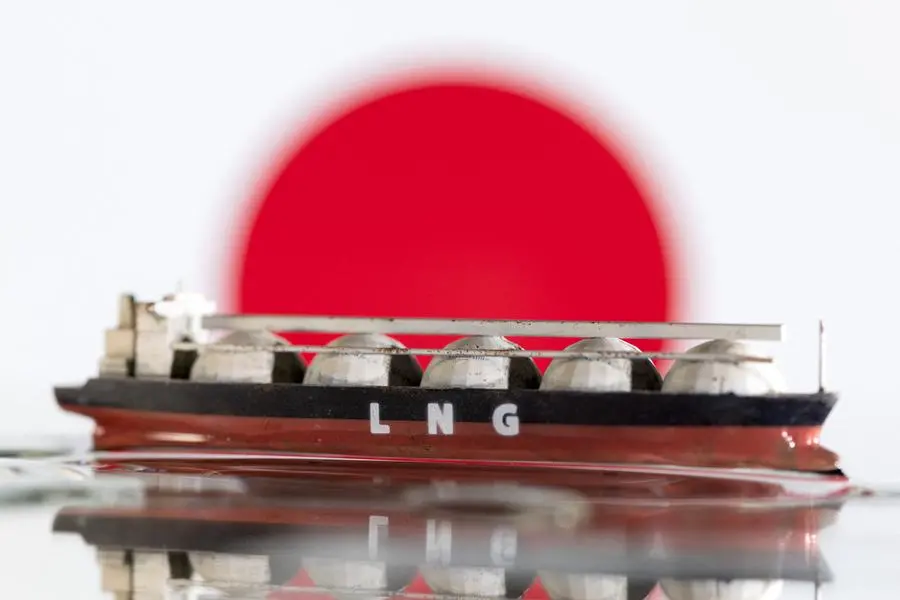PHOTO
Japan Gas Association members anticipate limited impact on their liquefied natural gas (LNG) procurement in the event of a blockade in the Strait of Hormuz, but expects gas prices would rise due to higher oil prices, its chairman said on Wednesday.
Iran has threatened to close the Strait of Hormuz if it deems necessary to protect itself from Israel.
Iran launched missiles and drones at Israel on April 13 in what it said was retaliation for Israel's suspected deadly strike on its embassy compound in Damascus on April 1, but almost all were shot down. Israel has said it will retaliate.
"Even if the Strait of Hormuz were to be closed, there would be no major quantitative impact on Japan, or on city gas providers in particular, as we buy only a few percent of LNG from Qatar," Takashi Uchida, the chairman of the Japan Gas Association, told a news conference.
He cited Japan, the world's second-biggest importer of the super-chilled fuel, imports only 4-5% of the nearly 70 million metric tons of LNG from Qatar.
The Strait of Hormuz runs between the Persian Gulf and Gulf of Oman and provides a key route for shipping.
About a fifth of the volume of the world's total oil consumption passes through the strait on a daily basis. An average of 20.5 million barrels per day (bpd) of crude oil, condensate and oil products passed through Hormuz in January-September 2023, data from analytics firm Vortexa showed.
But Uchida, also the chairman of Tokyo Gas, warned LNG prices could be significantly affected by rising crude oil prices as many of their long-term contracts are linked with oil index.
"As for prices, Saudi Arabia's crude oil goes through the Strait of Hormuz, which means the blockade could lead to a significant increase in crude oil prices," he said.
"Since LNG prices are linked to crude oil in a large number of long-term contracts, LNG prices could rise in tandem with crude oil prices," he said. (Reporting by Yuka Obayashi; Editing by Michael Perry)





















